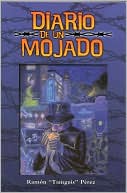Category Books
- Fiction Books & Literature
- Graphic Novels
- Horror
- Mystery & Crime
- Poetry
- Romance Books
- Science Fiction & Fantasy
- Thrillers
- Westerns
- Ages 0-2
- Ages 3-5
- Ages 6-8
- Ages 9-12
- Teens
- Children's Books
- African Americans
- Antiques & Collectibles
- Art, Architecture & Photography
- Bibles & Bible Studies
- Biography
- Business Books
- Christianity
- Computer Books & Technology Books
- Cookbooks, Food & Wine
- Crafts & Hobbies Books
- Education & Teaching
- Engineering
- Entertainment
- Foreign Languages
- Game Books
- Gay & Lesbian
- Health Books, Diet & Fitness Books
- History
- Home & Garden
- Humor Books
- Judaism & Judaica
- Law
- Medical Books
- New Age & Spirituality
- Nonfiction
- Parenting & Family
- Pets
- Philosophy
- Political Books & Current Events Books
- Psychology & Psychotherapy
- Reference
- Religion Books
- Science & Nature
- Self Improvement
- Sex & Relationships
- Social Sciences
- Sports & Adventure
- Study Guides & Test Prep
- Travel
- True Crime
- Weddings
- Women's Studies
Diario de un Mojado (Diary of an Undocumented Immigrant) » (Spanish Language Edition)

Authors: Ramon Tianguis Perez
ISBN-13: 9781558853454, ISBN-10: 1558853456
Format: Paperback
Publisher: Arte Publico Press
Date Published: June 2003
Edition: Spanish Language Edition
Author Biography: Ramon Tianguis Perez
Book Synopsis
Diario de un mojado es la historia verídica de Ramón "Tianguis" Pérez, de su odisea por los Estados Unidos, del inacabable camino de trabajos domésticos y sus indignaciones, así como su humor y optimiso. A través de imágenes implacables, la prosa incisiva ofrece una visión de los Estados Unidos desde la clase pbrera inmigrante, Un sinnùmero de sociólogos han documentado esta lucha, pero olvidan el testimonio de sudor, trabajo y llanto.
Quizás esta obra nos ayude a comprender a los seres humanos frecuentemente humillados, casi siempre desapercibidos, que nos atienden en las mesas de los restaurantes, limpian nuestras casas o cosechan la fruta y vegetales que comemos. El testimonia de Tianguis Pérez nos presenta esa visión que muy pocas veces se documenta en forma de libro—y casi nunca en un libro escrito por los obreros mismos. Tianguis dice que emigrar "era seguir la tradición del pueblo. Uno casi puede decir que somos un pueblo de mojados". eneste libro, ese pueblo de mojados obtiene voz.
Acerca del Autor
Ramón "Tianguis" Pérez es originario de San Pablo Macuiltianguis, un pueblo zapoteca en la región de la Sierra Juárez en el estado de Oaxaca, donde su familia opera un taller de gabinetes. En 1979, Pérez hizo el primero de una serie de viajes que lo llevarían como mojado a Texas, California y Oregon. Él y su esposa Mary viven en Xalapa, Veracruz, donde Pérez trabaja como fotógrafo ambulante.
Sonia Merubia, Benson Latin American Collection, Univ. of Texas, Austin Copyright 2003 ReedBusiness Information. - Criticas
In addition to this book, which was first published in English in 1991, Perez wrote Diary of a Guerrilla (1999), a personal testimony about his experience as a guerrilla combatant in Mexico fighting to reclaim the ancestral communal lands of Oaxaca. This first-person account, the original Spanish version of Perez's first book, focuses on the author's journey to the United States as a young, undocumented immigrant. After experiencing some problems crossing the border, he finally arrives in the United States, where he holds a succession of menial jobs in Houston and San Antonio, and later in Oregon, where he harvests strawberries. Perez adds substance to the narrative by providing the historical background behind the waves of immigration between the two countries, focusing especially on the Bracero program in the early 1940s, which allowed thousands of impoverished Mexicans to work as farm laborers in the United States. He also uses and interprets terminology peculiar to the undocumented worker, such as coyote, a man who takes people across the border to their city of destination for a hefty fee, and the much cheaper patero, who merely guides the immigrants across the river. Finally, the author exposes the ironies of immigration. After returning to Mexico, he has to bribe some customs officials so that he can keep the carpentry tools he has brought for his father's shop. Although at times the stories about the characters he meets seem more like digressions than an integral part of the narrative, this is generally a worthwhile book. Highly recommended for public libraries and bookstores.
Table of Contents
Subjects
 Law & Order
Law & Order  Criminals - General & Miscellaneous - Biography
Criminals - General & Miscellaneous - BiographyBiography
 All Biography
All Biography  General & Miscellaneous Biography
General & Miscellaneous BiographyBiography
 All Biography
All Biography  Legal Figures, Law Enforcers, & Criminals
Legal Figures, Law Enforcers, & CriminalsLaw
 General & Miscellaneous Law
General & Miscellaneous Law  Immigration, Emigration, & Naturalization Law
Immigration, Emigration, & Naturalization LawNonfiction
 Law
Law  General & Miscellaneous Law
General & Miscellaneous LawNonfiction
 Social Sciences
Social Sciences  Immigration & Emigration
Immigration & EmigrationPolitical Books & Current Events Books
 Immigration & Emigration
Immigration & Emigration  Immigration, Emigration, & Naturalization Law
Immigration, Emigration, & Naturalization LawPolitical Books & Current Events Books
 All Politics
All Politics  Immigration & Emigration
Immigration & EmigrationScience & Nature
 Social Sciences
Social Sciences  Immigration & Emigration
Immigration & EmigrationSocial Sciences
 Immigration & Emigration
Immigration & Emigration  Immigration, Emigration, & Naturalization Law
Immigration, Emigration, & Naturalization LawNonfiction
 Biography
Biography  Law & Order
Law & OrderNonfiction
 Biography
Biography  All Biography
All BiographyNonfiction
 Politics & Current Affairs
Politics & Current Affairs  Immigration & Emigration
Immigration & EmigrationNonfiction
 Politics & Current Affairs
Politics & Current Affairs  All Politics
All PoliticsPolitical Books & Current Events Books
 Law
Law  General & Miscellaneous Law
General & Miscellaneous Law
